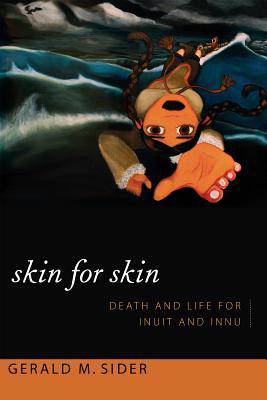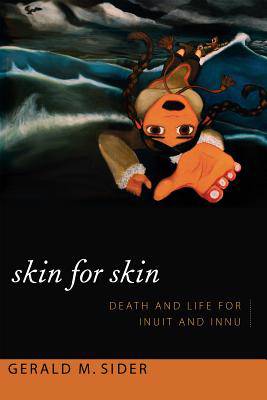
- Afhalen na 1 uur in een winkel met voorraad
- Gratis thuislevering in België vanaf € 30
- Ruim aanbod met 7 miljoen producten
- Afhalen na 1 uur in een winkel met voorraad
- Gratis thuislevering in België vanaf € 30
- Ruim aanbod met 7 miljoen producten
Zoeken
Omschrijving
Since the 1960s, the Native peoples of northeastern Canada, both Inuit and Innu, have experienced epidemics of substance abuse, domestic violence, and youth suicide. Seeking to understand these transformations in the capacities of Native communities to resist cultural, economic, and political domination, Gerald M. Sider offers an ethnographic analysis of aboriginal Canadians' changing experiences of historical violence. He relates acts of communal self-destruction to colonial and postcolonial policies and practices, as well as to the end of the fur and sealskin trades. Autonomy and dignity within Native communities have eroded as individuals have been deprived of their livelihoods and treated by the state and corporations as if they were disposable. Yet Native peoples' possession of valuable resources provides them with some income and power to negotiate with state and business interests. Sider's assessment of the health of Native communities in the Canadian province of Labrador is filled with potentially useful findings for Native peoples there and elsewhere. While harrowing, his account also suggests hope, which he finds in the expressiveness and power of Native peoples to struggle for a better tomorrow within and against domination.
Specificaties
Betrokkenen
- Auteur(s):
- Uitgeverij:
Inhoud
- Aantal bladzijden:
- 312
- Taal:
- Engels
- Reeks:
Eigenschappen
- Productcode (EAN):
- 9780822355212
- Verschijningsdatum:
- 14/03/2014
- Uitvoering:
- Hardcover
- Formaat:
- Genaaid
- Afmetingen:
- 155 mm x 234 mm
- Gewicht:
- 544 g

Alleen bij Standaard Boekhandel
+ 450 punten op je klantenkaart van Standaard Boekhandel
Beoordelingen
We publiceren alleen reviews die voldoen aan de voorwaarden voor reviews. Bekijk onze voorwaarden voor reviews.











